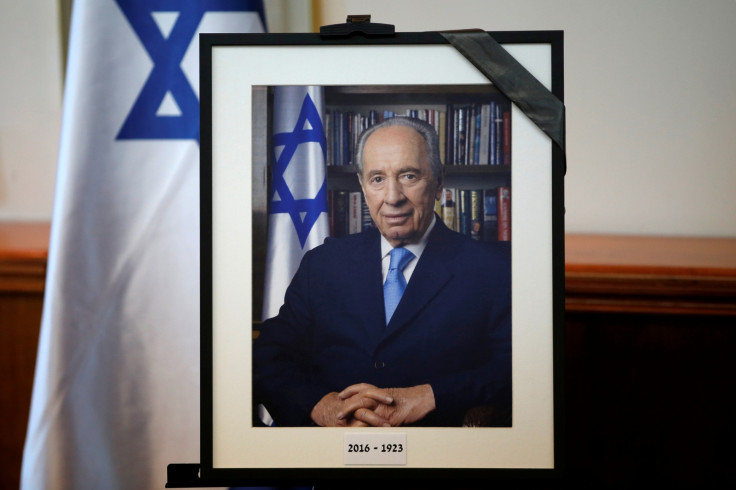Isaac Herzog: Shimon Peres' dream of a two-state solution 'alive and kicking'
Labour leader said his mentor's vision of peace with the Palestinians would be implemented.

Israeli opposition leader Isaac Herzog believes that the late Shimon Peres' vision for a two-state solution to the Israel-Palestine conflict is still alive, as the country mourns the 93-year-old former president and statesman.
Herzog, who challenged Benjamin Netanyahu in the 2015 elections as leader of the Labour party Peres once led, described the veteran Israeli politician as his mentor. Speaking from Jerusalem, Herzog described Peres as a man "who never took a vacation" and dedicated even his final years to Israel and the Israeli people.
"For me he was a teacher, a mentor, a person I spent an enormous amount of time with throughout my adult life. [He was] an icon. [...] He worked tirelessly all his life, from his youth, to foster strengthening and supporting the state of Israel, its people. He was a stalwart of Israel's defence," he said.
Peres won the Nobel Peace Prize in 1994 – alongside Yasser Arafat and his long-term political rival Yitzhak Rabin – for the signing of the Oslo Accords, which sought to end 50 years of conflict between the Israel and the Palestinians. But 25 years on, Oslo is seen as a failure on both sides of the political divide: Israel still occupies all but a fraction of the Palestinian West Bank and peace talks have not restarted after breaking down in 2014.
During last year's election, Netanyahu spoke out against the two-state solution – although he later rowed back on the comments – and allies such as Avigdor Lieberman have been outspoken in their attacks on Palestine. Lieberman once called for 'disloyal' Palestinian citizens of Israel to be executed. Critics see the consensus that Peres spent the bulk of his career pursuing between Israel and Palestine as more remote than ever.
But Herzog said that despite "political impediments" to the two-state solution, it was still a reality and he denied that Peres' influence on the peace process had waned since the end of the Second Intifada in 2005.
"I think that Peres vision of a two-state solution is alive and kicking. It has its problems, it has its stumbling blocks, but it is possible. Peres dreamed of the new Middle East and I think in many ways there is an opportunity for [that]," he said.
"I think that the tragedy is that most people want, in an overwhelming majority, to move towards the two state solution and it is not happening due to political impediments. But Shimon Peres' vision and dream will go on. It will be implemented."
Peres died on Wednesday morning after a period of ill health. When he retired in 2014, he was the world's oldest active statesman and had been part of the political establishment since the age of 26.
© Copyright IBTimes 2025. All rights reserved.





















